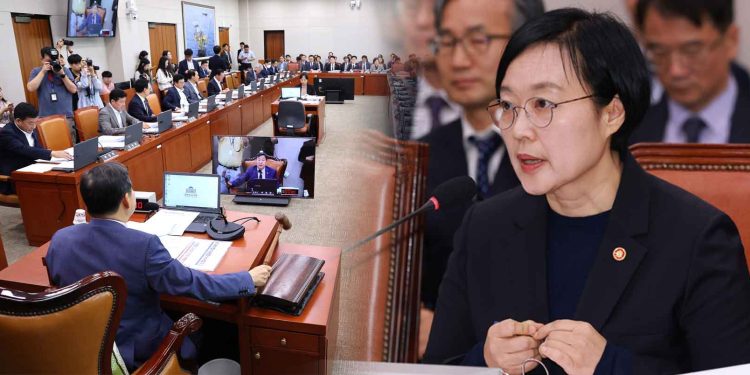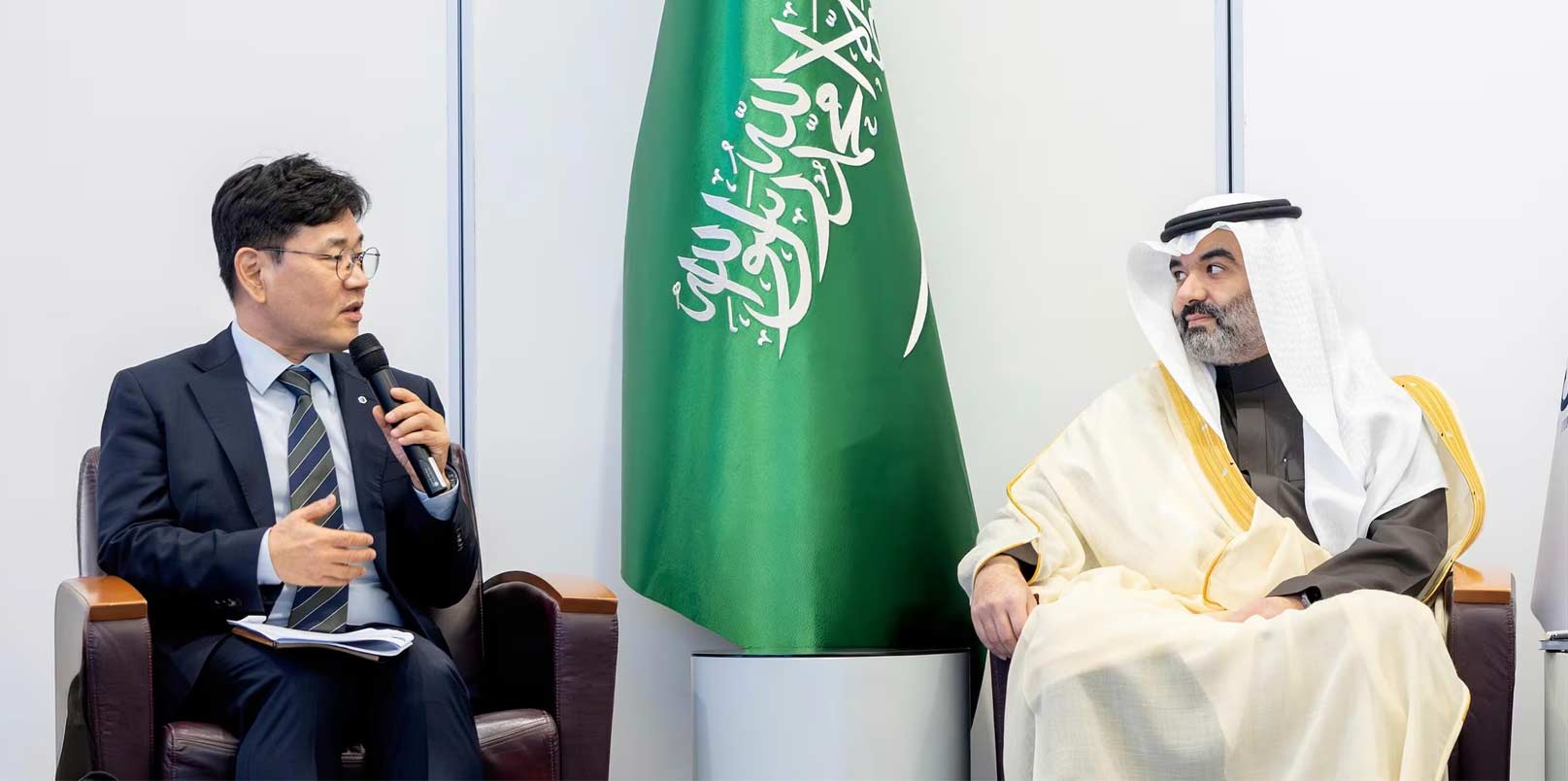Korea’s 2025 parliamentary audit has revealed a growing disconnect between government policy ambitions and execution on the ground. Lawmakers scrutinized how the Ministry of SMEs and Startups (MSS) manages key pillars of the innovation economy—technology protection, platform fairness, and export support—raising questions about the credibility of Korea’s innovation governance at a time of AI transition and global trade volatility.
2025 National Audit Highlights Critical Policy Gaps
The National Assembly’s Trade, Industry, Energy, SMEs and Startups Committee held its audit of the Ministry of SMEs and Startups (MSS) on October 14, 2025. The session covered a broad range of issues, including technology theft, delivery-app commission fairness, Onnuri Gift Certificate misuse, and support measures for SMEs facing U.S. tariff pressures.
Minister Han Seong-sook, who assumed office earlier this year, faced her first major policy review before lawmakers. While she outlined initiatives to strengthen small-business safety nets and accelerate digital transformation, legislators questioned whether these efforts are producing measurable impact.
Opposition lawmakers argued that SME policy execution remains inconsistent and overly Seoul-centric, while ruling-party members pressed for stronger safeguards in trade, technology, and fair-commerce regulation.
Technology Theft Cases Undermine SME Confidence
One of the most heated exchanges centered on intellectual property protection for small manufacturers, particularly in the K-beauty and consumer goods sectors.
Rep. Heo Jong-sik (Democratic Party) compared a small company’s cosmetic puff product with a nearly identical version sold by Daiso:
“A small firm sells its cosmetic puff for 5,000 won, but Daiso sells a copy for 1,000 won. That’s not technology theft—it’s moral theft.”
Minister Han Seong-sook acknowledged the technology theft problem, stating:
“Copying small-business products in beauty manufacturing is a serious issue. We will guide companies through the Technology Dispute Mediation System and provide legal advisory support.”
Lawmakers also revisited the Gompyo Wheat Beer dispute between Daehan Flour Mills and SevenBrau, which remains under MSS-led mediation.
Despite the government’s creation of the K-Discovery System to strengthen evidence disclosure in IP disputes, data presented to the committee showed that only 58 of 256 mediation cases (22%) have reached resolution since 2015—an indication of structural inefficiency.
Several legislators, including Rep. Seo Wang-jin (Rebuilding Korea Party), called for mandatory enforcement mechanisms to deter repeat offenders and protect SME innovations critical to Korea’s export competitiveness.
Delivery Platform Fairness and Fee Transparency Under Fire
The issue dominating the 2025 National Audit is the platform-economy, particularly on delivery apps.
Rep. Park Hyung-soo (People Power Party) criticized the high service fees of three major food-delivery apps—Baemin, Coupang Eats, and Yogiyo—and their refusal to participate in government co-prosperity evaluations.
He also argued that delivery platforms have created an unsustainable cost burden for small merchants and proposed a commission cap system as a corrective measure.
Minister Han Seong-sook then responded that the MSS is conducting a one-month market survey in October to analyze fee structures, adding:
“We will examine the detailed points raised and discuss feasible policy improvements.”
Separately, Rep. Seo Il-jun highlighted how government consumption coupons, designed to support small merchants, have instead generated profit for platforms charging 6.8% transaction fees, illustrating a policy misalignment between fiscal stimulus and fair-trade objectives.
Export Decline and Policy Accountability
Additionally, Korea’s export-oriented SMEs remain under pressure as U.S. tariffs on steel, aluminum, and auto components intensify.
Rep. Jeong Dong-man (People Power Party) reported that between July and August 2025, 133 small exporters closed, and exports dropped by USD 379 million. He criticized the Export Voucher Program’s limited selection rate (17.2%), saying it was inadequate to address real-time tariff shocks.
Minister Han Seong-sook then conceded that voucher funds had been depleted early and emphasized plans for faster budget execution once next year’s allocation is confirmed. Lawmakers urged the ministry to issue clearer export-support guidelines and ensure SMEs can respond quickly to tariff changes.
Onnuri Gift Certificates and Governance of Public Programs
The Onnuri Gift Certificate Program, established to boost local market consumption, also came under renewed scrutiny.
Following recent eligibility expansion, lawmakers revealed that 76% of all new transactions—KRW 34.8 billion—occurred in hospitals and clinics, deviating from the program’s intent to support small neighborhood stores.
Minister Han acknowledged that spending at large hospitals contradicts policy goals and vowed to coordinate with the Ministry of the Interior and Safety to strengthen monitoring and prevent fraudulent redemptions.
Legislators also cited unresolved cases of illegal certificate exchanges through regional credit cooperatives, reinforcing calls for stricter oversight of semi-public economic programs.
Platforms and Agencies Under Scrutiny
Woowa Brothers (Baemin) CEO Kim Beom-seok attended the audit as a witness, facing extensive questioning over profit redistribution, delivery-app fees, and co-growth compliance.
Lawmakers urged greater transparency in platform practices, emphasizing that voluntary cooperation alone cannot ensure fairness in Korea’s digital commerce ecosystem.
CEO Kim Beom-seok said:
“We are committed to dialogue and will continue contributing through job creation and domestic investment.”
2025 National SME Audit: A Turning Point for Korea’s Innovation Governance
The 2025 parliamentary audit underscores a fundamental tension within Korea’s innovation model—rapid digital and policy advancement versus slow institutional adaptation. These findings reveal that while Korea continues to champion AI and SME digitalization, policy execution gaps and weak enforcement capacity remain barriers to sustainable growth.
The repeated criticism of technology protection inefficiency, delivery-app dominance, and export-support shortfalls also signals that a policy environment still catching up to market realities.
These structural flaws directly affect the credibility of government-led programs that international partners and venture investors often depend on to evaluate Korea’s innovation climate.
Reform Imperative for the Next Policy Cycle
As Korea prepares its 2026 innovation and SME budget, the audit shows that policy credibility now depends on measurable outcomes, not program announcements.
That is why Minister Han’s administration faces mounting pressure to translate reform pledges into visible improvements in intellectual-property enforcement, digital platform regulation, and export resilience.
And ultimately for Korea’s startup ecosystem, the coming year will determine whether public-sector innovation governance can match the ambition of its global expansion narrative—or continue to fall short of the accountability investors and founders expect.
🤝 Looking to connect with verified Korean companies building globally?
Explore curated company profiles and request direct introductions through beSUCCESS Connect.
– Stay Ahead in Korea’s Startup Scene –
Get real-time insights, funding updates, and policy shifts shaping Korea’s innovation ecosystem.
➡️ Follow KoreaTechDesk on LinkedIn, X (Twitter), Threads, Bluesky, Telegram, Facebook, and WhatsApp Channel.






